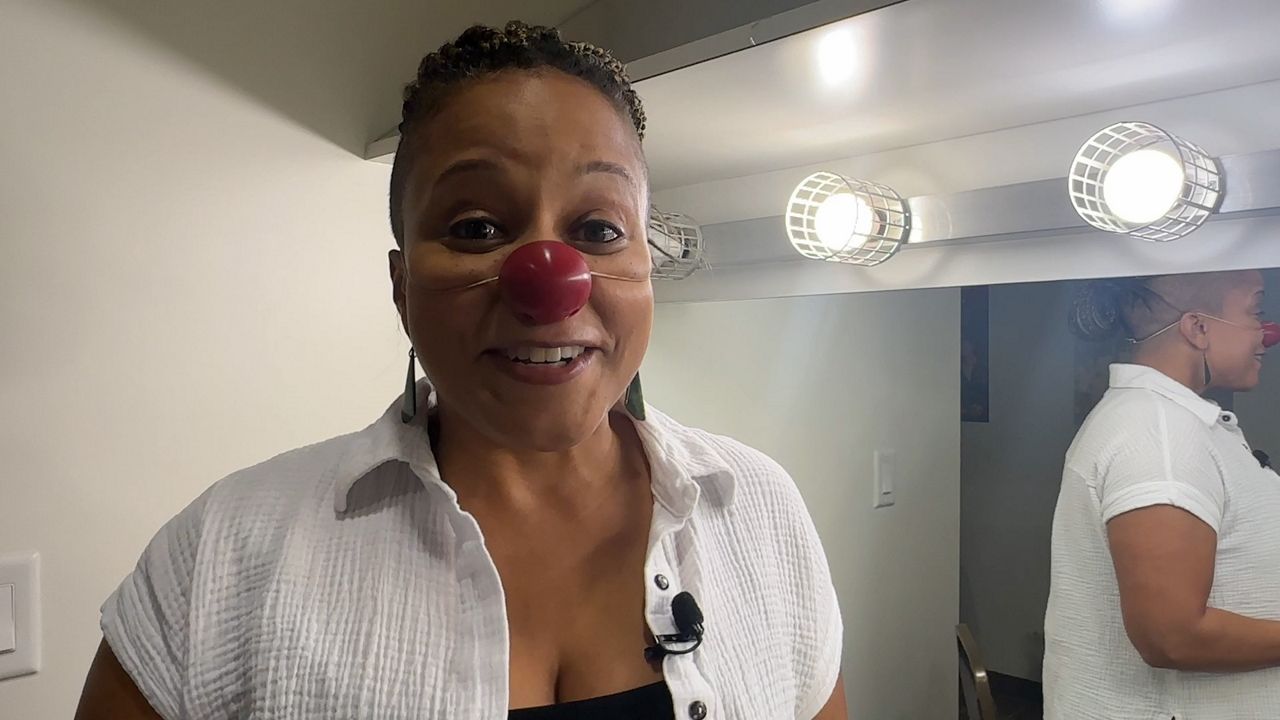LOS ANGELES — She calls it the world’s smallest mask.
“The clown nose,” Carolyn Ratteray sang as she produced two red orbs from a bag. “Can I put it on?”
It’s a transformative and powerful tool that plays an important role in Ratteray’s life and in her one-woman show, “Both And (A Play About Laughing While Black),” which just opened at the Wallis Annenberg Center for the Performing Arts in Beverly Hills.
The show, which also centers on the loss of her mother, talks about the need to face grief or struggle head-on while also holding something as simple as a clown nose in your hand.
“This world is heartbreaking on so many levels,” Ratteray admitted. “I can’t always turn away from that even if I want to, but I can make sure that I have something with me or a reminder or a token or an avenue toward actually feeling joy.”
Feeling joy is not always easy.
Ratteray began crafting this show during 2020 when joy was hard to come by. Isolation and loneliness. Illness and death. The murders of George Floyd and Breonna Taylor.
“And so ‘Both And (A Play About Laughing While Black)’ really seeks to start a conversation around how can we as humans, encompass all of our humanity?” she explained. “How can I be incredibly wise and still have my innocence? How can I be strong and soft? How can I be fierce and vulnerable? How do I train myself to be the 'both and'?”
The production at the Wallis comes after a highly successful world premiere last year at Boston Court Pasadena, where the show was developed.
Grieving a loved one is an inevitable part of life, Ratteray says, and being able to explore that in a community with a live audience proved cathartic on both sides.
“It was a such a special experience,” she recalled. “To come out into the audience and have so many people be like, ‘Thank you. I needed that. I didn’t know I needed that. But I did.’”
Andi Chapman directed that original production and this one as well. It explores a timeless theme, she says, with a deep history. The play goes back to the Middle Passage and how, like the humans on the slave ships, joy was locked away to make room for survival.
“Thinking that there could be no joy because of the circumstances that we were in,” Chapman said.
Even today, she says, that feeling persists, but the play is about remembering that all hope is not lost, that joy remains.
“It’s in the cakewalk,” Chapman explained. “It’s in the Holy Ghost dances in church. It’s in the playing spades. It’s in the joking in the barber shop.”

And it’s in that nose.
“I could speak forever in clown,” she laughed.
She refers to the clown as a tradition as old as storytelling, one that allows actors and humans in general to access their vulnerability.
“Clowns are undaunted in the face of tremendous impossibility,” Ratteray said. “In tremendous circumstances, that clown energy will say, ‘Yeah, I can do it.’ There’s an innocence to the clown that I find incredibly healing and useful.”
Reconnecting people to joy is her mission and while she can’t give everyone in the theatre a red nose, she did offer a bit of advice — a tip for sniffing out joy in unexpected moments.
“If we just lift our eyebrows and breathe, there’s a curiosity that comes there’s a wonderment,” she said, her eyes twinkling as they widened. “That’s it. All you have to do is just lift your eyebrows, and breathe into that lift of the eyebrows and I bet you can invite a sense of wonder into your space.”
The nose is optional. What’s essential is an open heart.



